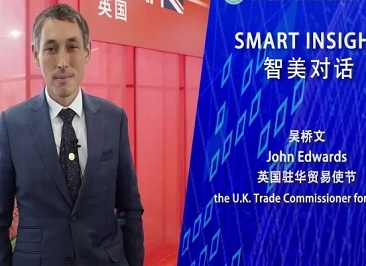..
Companies trading with Japan found most active under RCEP
Updated: 2022-05-17
english.liangjiang.gov.cn
About 40 conversations have already been conducted between Hu Xiaoqin and Shan Yu, despite the fact that it's only May. Hu Xiaoqing is working for HighChem (ChongQing) Chemicals Co, and Shan Yu is a liaison officer at the Lianglu Cuntan Customs affiliated to the Chongqing Customs District.
"We have been communicating with companies more frequently to help them better take advantage of favorable policies under the Regional Comprehensive Economic Partnership (RCEP)," Shan Yu said.
Chongqing has issued a total of nearly 400 RCEP certificates of origin since January 1, when the RCEP took effect, and the end of April, more than 70 percent of which are for trade with Japan. The certificate is needed in order for companies to enjoy preferential tariffs.
Hu Xiaoqin said HighChem had applied for 22 RCEP certificates of origin by April, covering 13 types of goods. The company has exported 22.56 million yuan ($3.33 million) in chemicals to Japan, which can receive an estimated 100 thousand yuan in tax reductions.
Companies with trade ties with Japan have been found to be the most active under the RCEP so far in Chongqing. According to the Chongqing Customs District, the RCEP agreement is the first free trade agreement between China and Japan, and around 25 percent of Japanese exports to China and 57 percent of Chinese exports to Japan have become tariff-free since the agreement was put into effect. The two figures will eventually rise to 86 percent and 88 percent, respectively.
Companies importing from Japan are also benefiting from the RCEP. He Daoguo, chairman of Chongqing Meilian International Logistics Co, said the company imports auto parts, equipment, and medical instruments from Japan, and had saved almost 1 million yuan in taxes by the end of April under the RCEP.
Compared to companies with strong business relations with Japan, those trading with other RCEP member countries have found the benefits limited so far.
SAIC-IVECO Hongyan Commercial Vehicle Co was the first company that applied for an RCEP certificate of origin in Chongqing for a batch of mixer truckers being exported to Vietnam. Xiong Zhu, head of the international business department of the company, said that China and ASEAN have already signed a free trade agreement, so there is no significant difference under the RCEP.
Under the RCEP, more than 90 percent of goods traded between member countries will eventually enjoy zero tariffs within the next ten years. The tax reductions are being carried out in a phased manner and vary by country. For small and medium-sized foreign trade enterprises in the growing stage, benefits are limited in the short term, according to an official at the Chongqing Municipal Commercial Committee.
Another problem faced by companies is a lack of awareness of the policy.
Currently, the primary concern of companies is tariff reductions instead of other benefits such as customs clearance, trade, and investment. Consequently, they may miss out on some key development opportunities, the official added. In response, there will be training rolled out for companies to better take advantage of RCEP policies.
Video

UK trade commissioner for China praised Chongqing as a burgeoning center in intelligent manufacturing.





